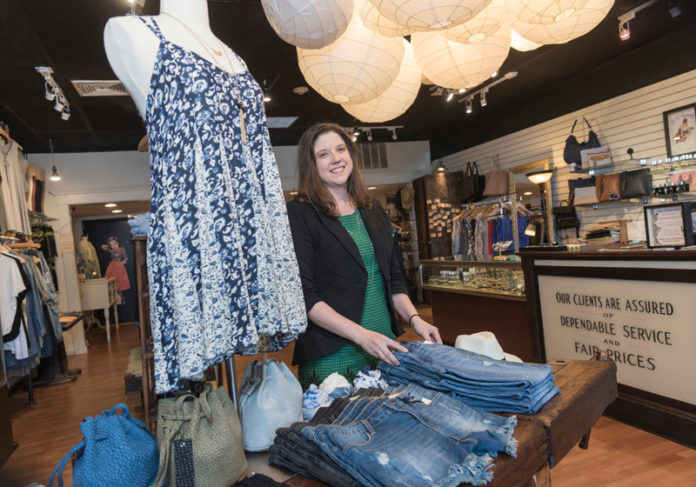
The spread of parking meters in Providence from the downtown business district into surrounding neighborhoods with popular business centers, including Wayland Square and Federal Hill, has unleashed a wave of criticism from small-business owners.
In addition to providing more revenue for the city budget, the new electronic meters are aimed at preventing people from monopolizing the street parking spaces, which were previously free, but limited to two hours.
Under Mayor Jorge O. Elorza, Providence has greatly expanded the reach of the electronic meters, installing 700 of the devices to new locations such as Atwells Avenue in Federal Hill, and Waterman, Thayer and Angell streets on the East Side.
Planned expansion onto Hope Street and the Wickenden Street commercial corridor, both on the East Side, is on hold, in part due to merchant complaints.
The Wickenden Area Merchants Association, which had started an online petition against the meters, attracted support from nearly 2,000 people, according to Harry Adler, a co-owner of Adler’s Hardware on Wickenden Street.
“The real core of the issue is our clients don’t experience difficulty parking,” Adler said, in a recent interview. “So it feels just like a tax. … Presenting a tax as if it’s a solution to a problem would be one thing, if people felt like it was a problem – but no one does.”
The electronic meters charge $1.25 an hour, and accept coins as well as credit and debit cards. The minimum for a credit card purchase is $2.50.
In areas that have long had parking meters, the new devices are replacing former coin-operated machines. But in other neighborhoods, they are replacing a system of free parking, albeit with a two-hour limit.
Several business owners interviewed recently said the city has not consistently enforced the two-hour limits.
In the Federal Hill area, the new meters came onboard more than a month ago, according to Bob D’Uva, president of the Federal Hill Commerce Association. He is surveying the membership of businesses in the area on the matter, and has scheduled a meeting with Elorza.
Was the existing street parking inadequate? D’Uva said he wasn’t aware of any complaints. “In my honest opinion, I don’t even think it was an issue,” he said. Parking, D’Uva said, is needed not only for customers and visitors, but also for employees of the various businesses.
The restaurants popular in the neighborhood have employees working at them nightly, he noted. “They have to park somewhere as well.”
Some businesses on Thayer Street say the meters are hurting business. Avon Cinema co-owners Kenneth R. Dulgarian and Richard Dulgarian have started a petition to have them removed.
Dixie Carroll, who owns J Marcel, a women’s clothing boutique on Hope Street, said parking meters are not needed in that area. Businesses on Hope Street have been told that for now, the city will instead strengthen its enforcement of the existing two-hour rule.
Initially, the city presented the issue as helping businesses, by encouraging faster turnover among the spots located along the street, Carroll said. But the Hope Street Merchants Association hasn’t found that people are monopolizing those spaces, said Carroll, who is co-president of the association.
“Increasing [parking] turnover is the opposite of what we want,” Carroll said. “We want residents and tourists alike to come and spend the day on Hope Street.”
When Carroll opened her store in 2008, the Hope Street business district had many vacant storefronts. Now, openings fill quickly and the area has become a popular destination for visitors as well as residents, particularly on weekends.
But during the weekday, parking has not filled as quickly as the city initially thought. A city parking study, Carroll said, found that parking spaces on Hope Street were occupied less than 85 percent of the time.
Merchants contacted Elorza’s office to try to reach an agreement that would provide the city with revenue from parking, but also minimize the impact of meters.
The result is a compromise that will have the city enforcing the existing two-hour limits on parking.
Along Wickenden Street, a similar effort transpired. The merchants recently were told the city would not install the meters, and instead would enforce existing restrictions on parking. In those cases, the violators will be ticketed.
Adler said the meters don’t make sense for the area.
“If you went into Adler’s to have a key duplicated, it costs $1.79,” Adler said. “If you have a credit card, to pay for the parking, you pay $2.50. So the parking is more expensive than the purchase. It doesn’t make sense.” •












